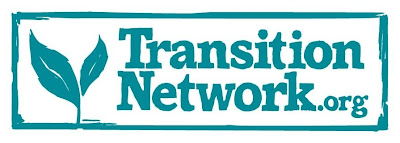
by Oliver Wheaton
A new environmental initiative is becoming popular around the globe. Many different communities are responding to the problems of ‘peak oil’ and the increasing reliance on external sources for food and energy by becoming Transition Towns. What is a transition town? According to www.transitionnetwork.org a Transition Initiative is «a community-led response to the pressures of climate change, fossil fuel depletion and increasingly, economic contraction».
When implementing a transition initiative, a community intends to decrease its dependency on oil and imported goods. In a world that is dangerously dependent on a non-renewable and environmentally destructive energy source, a Transition Initiative is a step towards creating a self sufficient community that works together to reduce waste output and energy consumption. A main concern of the project is the impending problem of peak oil and how this will effect small towns and local businesses when oil prices begin to increase even faster. One of the key elements of a successful Transition Initiative is bringing a local community together in a way that will not only benefit the environment by reducing the collective carbon footprint of the area, but also benefit the community by encouraging increased communal activity, both socially and economically. It differs from localism, in that it is an inclusive system that anyone can be part of.
Transition Initiatives have been implemented all over the world with varying degrees of success. One of the earliest and perhaps most well known Transition Towns was started in Totnes in the UK. Not only has Transition Town Totnes been involved in local politics, developed an Energy Descent Action Plan to reduce the towns energy consumption, but it has even become the first community in England to successfully develop its own local alternative currency, known as the “Totnes Pound”, which intends to keep a certain amount of money spent in local businesses in order to help the local economy.
To better understand what the formation of a Transition Initiative entails we got in contact with “Transition Malvern Hills” member Robin Coats, a Transition Initiative taking place in central England in the surrounding area of the iconic Malvern Hills. He kindly answered some questions we had about Transition Towns and specifically the Transition Initiative he was part of.
How did the program start?
«A local Green entrepreneur who was also part of the local authorities partnership agreed to get people he knew together to see if they were willing to start a Transition Town Initiative. I wasn't at the first meeting (there were I think about 15 there) and they agreed to go ahead».
How many people are involved?
«It very quickly developed with a core of about 8 very committed individuals and other interested individuals joining in for particular groups and events. We have an email list about 200. Many events attract a small group of about 8 to 12. Special events can get 100 and our unleashing Event had 500».
What type of activities or events have taken place?
«We have some activity groups focussed around subjects like Food, Energy etc., An Awareness Raising Group has been at the heart of organising Events with films shows, talks, demonstrations sometimes with other local groups like the Quakers. We attend other groups public days with a stall and talk to people and give out information. We have set up schemes/projects like: supporting the Local Youth Club with Garden Vegetable Growing, Car Club where members can use community cars, Electric Bike Loans, Home Energy Advice, Garden Sharing for Vegetable Growing, Orchard Group reclaiming old orchards. You can get an idea of what is currently happening from the Calendar of Events on our web site (this is updated every 3 months) and also from the Affiliated Groups like Colwall Greener and the Malvern Community Forest. We are also collaborating with schools and attend meetings with some formal bodies in the area».
Have you seen any obvious changes around the area as a result of your work?
«Many small changes and far more people willing to talk about climate change and Peak Oil and doing more in their own lives to make small changes. Slowly more people are asking for help and offering support to us».
What do you think lies in store in the future for Transition Malvern Hills?
«There are so many possibilities for engaging with people and organisations we are not short of ideas but we do need more committed volunteers able to take the initiative and help others to make changes».
Turning a community into a Transition Town (or village, city, district, even island!) is a very interesting way to combat the effects of peak oil and increasing energy required to transport goods around the world. New Transition Initiatives are constantly appearing around the globe, many of which go on to achieve great success in bringing a community together to reduce CO2 emissions and increase recycling and eco-friendly living.

No comments:
Post a Comment